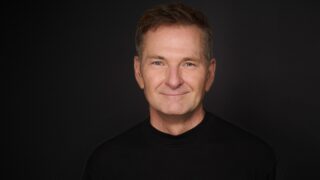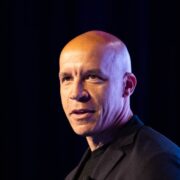The Lavin Agency Speakers Bureau
A speakers bureau that represents the best original thinkers,
writers, and doers for speaking engagements.
We value your privacy
We use cookies to enhance your browsing experience and to analyze our traffic. By clicking "Accept All", you consent to our use of cookies.
We use cookies to help you navigate efficiently and perform certain functions. You will find detailed information about all cookies under each consent category below.
The cookies that are categorized as "Necessary" are stored on your browser as they are essential for enabling the basic functionalities of the site. ...
Necessary cookies are required to enable the basic features of this site, such as providing secure log-in or adjusting your consent preferences. These cookies do not store any personally identifiable data.
Functional cookies help perform certain functionalities like sharing the content of the website on social media platforms, collecting feedback, and other third-party features.
Analytical cookies are used to understand how visitors interact with the website. These cookies help provide information on metrics such as the number of visitors, bounce rate, traffic source, etc.
Performance cookies are used to understand and analyze the key performance indexes of the website which helps in delivering a better user experience for the visitors.
Advertisement cookies are used to provide visitors with customized advertisements based on the pages you visited previously and to analyze the effectiveness of the ad campaigns.
A speakers bureau that represents the best original thinkers,
writers, and doers for speaking engagements.
You can forecast for chaos—and when it hits, you’ll be ready to profit from a world of opportunity.
If business is an ocean, companies need to avoid the waves that could sink them. But what if waves go rogue, leading to unexpected threats like pandemics? JONATHAN BRILL says these events may be unexpected, but we can plan for them. That’s what he did when he was Global Futurist at Hewlett-Packard, boldly steering the legendary tech giant through a decade of sudden changes. Jonathan, author of the business survival guide Rogue Waves, practices his craft for the world’s biggest companies, like Microsoft and Samsung; he forecasts the future with practical techniques you can learn. He’ll teach you about the trends that will reshape the future, how to scale the skills that will help your organization adapt, and how to see risks as opportunities. Great companies don’t just roll with waves: they come out stronger on the other side.
Why do some companies handle radical systemic changes better than others? They have a strategy in place for making sense of the future, says Jonathan Brill. During his time as the Global Futurist at HP, Brill helped the iconic company prepare for the possibility of a pandemic, a takeover attempt, and a sudden market decline. The result was an excellent 2020 in the face of all three, while their competitors suffered huge blows to their earnings. In his new book Rogue Waves, Brill draws from his experience, using an evidence-based framework to help you capitalize on the economic, technological, and social undercurrents most likely to collide and reshape the business world.
An actionable framework for driving change instead of being blindsided by it.Adam Grant, #1 New York Times bestselling author and host of the TED podcast WorkLife
Every company, at one point or another, will be hit with a “rogue wave”, whether it be a financial crisis and a pandemic, or social chaos, trade wars, and the next frontier of AI. These rogue waves aren’t predictable, says innovation expert and business futurist Jonathan Brill. But they are forecastable. Brill spent years advising leadership at Hewlett-Packard on the company’s 10-year portfolio of opportunities and threats, and today, consults globally for organizations like Samsung, Microsoft, Verizon, PepsiCo, and the US government. In his must-read survival guide Rogue Waves, he draws from his experience to lay out an actionable plan for riding out the fiercest of storms, teaching you how to effectively future-proof your business. Timely, important, and essential, Rogue Waves equips you with the predictive tools you need to take advantage of uncertainty, turn chaos into profit, and control your future, so that your company thrives―while your competitors are washed away. Phil Zimbardo, Professor Emeritus, Stanford University, declares it “a profound contribution to the science of decision making and the psychology of leadership.”
Prior to his role at HP, Brill has spent the last two decades building product innovation teams and developing growth pipelines for government, prestigious research institute MIT Media Lab, and top-tier brands. He founded the Special Projects Agency, a diverse group of designers, creators, engineers, and scientists, that have created unique experiences ranging from world’s fair pavilions to AI software to IoT devices. Brill is an imaginative thinker who helps companies delight customers at scale. To date, his companies have developed more than 325 products that have generated an astonishing $27 billion dollars in revenue for customers.
Brill is a board advisor at Frost & Sullivan, a market intelligence firm operating in 46 countries. He holds several patents for his inventions in display technology, augmented reality, and HVAC. National Geographic and Business Week have both featured his work, and he has contributed to work displayed in New York’s landmark Museum of Modern Art. He is an in-demand thought leader, speaker, and contributor to TED, Singularity University, Korn Ferry, JPMorgan, Forbes, and Harvard Business Review. Brill graduated from Pratt Institute, a leader in higher education for creative professionals, and has completed extensive executive training at Stanford.

Founder of Street Symphony Co-Founder of the Skid Row Arts Alliance MacArthur Genius

Author of Self-Compassion: The Proven Power of Being Kind to Yourself Co-founder of the Center for Mindful Self-Compassion

Retail and Consumer Futurist Internationally Acclaimed Author Founder of Retail Prophet

Author of Grit, the #1 New York Times Bestseller | Pioneering Researcher on Grit, Perseverance, and the Science of Success

2024 Nobel Prize Winner | 3rd Most Cited Economist in the World | MIT Institute Professor | Bestselling Co-Author of Why Nations Fail and Power and Progress

Pulitzer Prize-Winning Creator of The 1619 Project | Executive Producer of the Emmy Award-Winning 1619 Project Hulu Docuseries | MacArthur Genius

Nike's Former Chief Marketing Officer | Author of Emotion by Design
CEO of The Atlantic | Former Editor-in-Chief of WIRED
Globalization has undoubtedly improved the quality of life for billions of people around the world. Yet, for all its speed and efficiency, globalization also increases the impact of synchronous economic shocks, says futurist Jonathan Brill.
The novel coronavirus, more specifically titled COVID-19, is showing us not only how interconnected our technological and economic systems are, b...